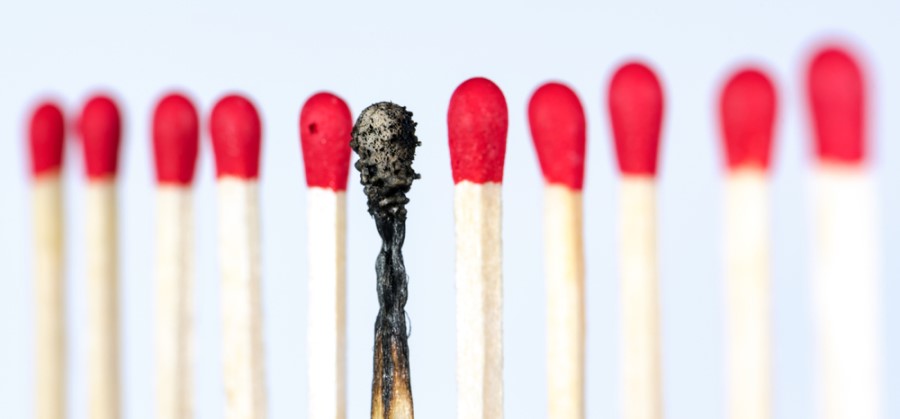Burnout will get worse before it gets better, believes Mark Kelly of Boston Consulting Group

The impact of burnout and how employers can manage this issue was a key topic covered in REBA’s recent webinar on mental wellbeing in a time of change: strategies to manage burnout, pressure and motivation in your dispersed workforce. Mark Kelly, director of global benefits and wellbeing at Boston Consulting Group (BCG), agreed that burnout was almost certainly going to get worse before it gets better.
His comments were prompted by a question from the audience, which asked for the panel’s views on how burnout will play out in the next six months. The question centred on the idea that, as restrictions are eased, we are likely to have changing pressures from organisations, alongside a chaotic mix of homeworkers and those in the workplace.
Kelly agreed that burnout is likely to get worse before it gets better. “Yes, that’s likely to be the long tail, not even in the next six months, but the next 12–24 months.
“I talked to a number of my colleagues about this concern as we went deeper into the crisis,” he said. “In the sector we’re in, we’ve known that this challenge has been around for a long time in terms of chronic stress and burnout, but it has taken an infectious disease – an acute stressor – to really highlight the problems with longer term chronic stress, and lifestyle diseases as well. I absolutely think that it’s going to be a longer tail.”
As an example of how workplace pressures and working patterns have changed, Kelly highlighted his participation in the REBA webinar. He explained that being on a virtual panel meant that he could still do other things with his day. However, in our previous environment, taking part in an event would have required a day to a day and a half of his time.
“So as we transition back the question is, how do we continue to be as productive or able to maintain a lot of those new things? And that will drive a lot more challenges as people try to wrestle between the old routines, the new routines and what things are going to come further forward,” he says.
“Stress in itself is not a good or a bad thing, we’re still going to have peak stresses. The importance is really around, how do we make sure that we recover between those big bouts of stress? And that’s where we’ll see the problem – as people will be trying to commute or balance different things and that will be an interesting challenge for quite some time.”
On top of grappling with new ways of working and additional pressures as we transition back into the workplace, there are also concerns around the impact of social isolation. Kelly highlights that we’ve all had this isolating experience, but the consequences of that isolation are not yet clear and are likely to form part of the longer term mental health consequences from the pandemic.
To round-off the question about burnout and the long-term outlook for employee mental health, Debbie Bullock, UK Wellbeing@Aviva lead, added: “Anyone who believes that the mental wellbeing challenges that have been brought by Covid-19 will disappear when lockdown ends is misguided, at best.”
For more on this topic, watch the full webinar on Mental wellbeing in a time of change: strategies to manage burnout, pressure and motivation in your dispersed workforce.
The author is Dawn Lewis, content editor at REBA.






